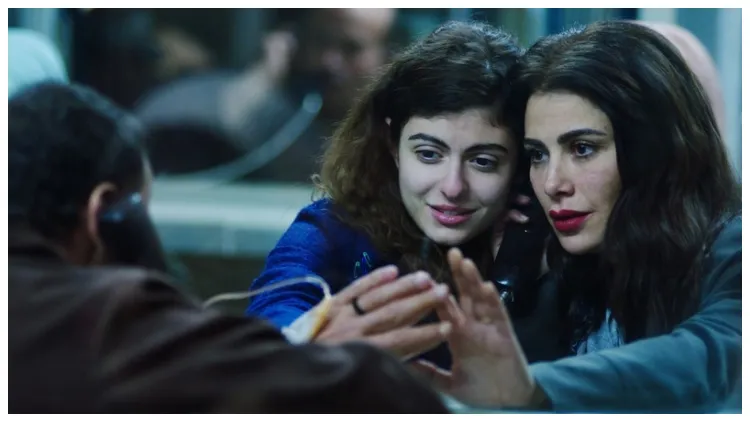
Ajit Rai/Cairo
The world has a chance to change its perception of Arab women at the Al Guna Film Festival in Cairo, Egypt. The images of women in the films from the region are completely different from those of Muslim countries.
Egypt's most celebrated filmmaker Mohamed Diab's Amira won three awards at the Venice Film Festival; Feathers by Egyptian Omar Al Johri; Costa Brava, Lebanon by Lebanese woman filmmaker Mounia Akal and Eli Daghar's For example; films such as The Sea Ahead and Casablanca Beats by Moroccan Nabil Ayuch were selected in the main competition section of this year's Cannes Film Festival.
GUNA FILM FESTIVAL,CAIRO
In these films, there is a world of independent women who are conscious of their identity and dreams. The scripts have layers of politics like the environment and also the present-day reality of the Arab world, issues that are unknown to the outsiders.
Mohamed Diab is currently one of Egypt's most celebrated filmmakers whose scripts are unconventional. After writing off bear scripts for Cairo 678 and Clash, his latest Amira is based on the illegal smuggling of sperm from a Palestinian political prisoner in an Israeli jail.
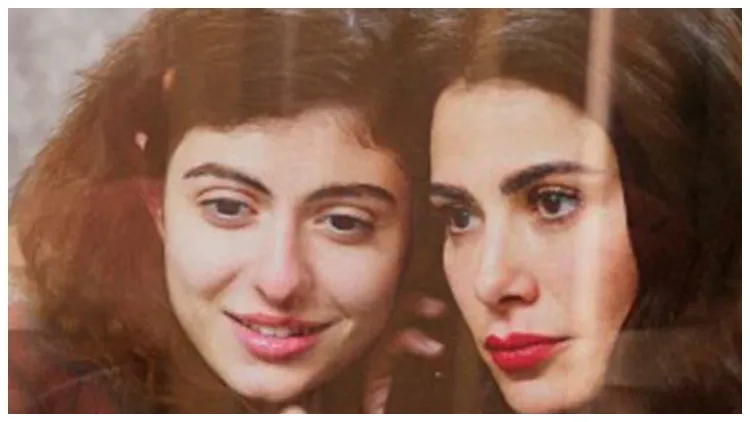
It’s a fact that thousands of children were born through illegal sperm trafficking since 2012 in the ongoing Palestine-Israeli conflict and they are considered legitimate children. The film is in the news for its complex script, debates surrounding the definition of family and blood ties, and discrimination and hatred towards foreigners.
Nuwar once again succeeds in transporting his sperm to his wife as that gives him a feeling of freedom.
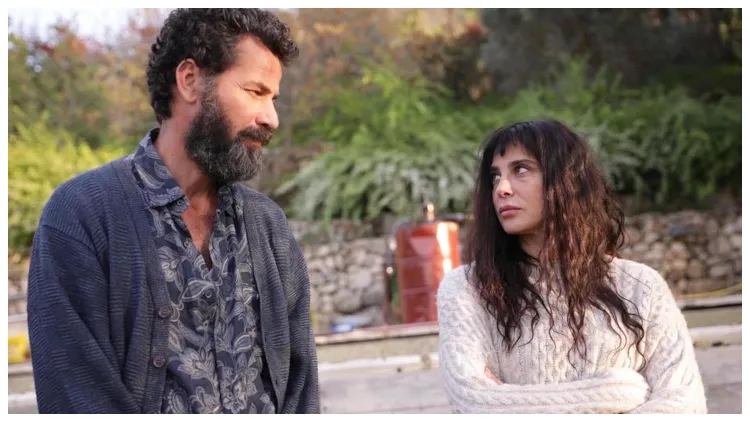
However, the medical examination of the sperm raises a storm. It comes out that Nuwar is impotent and his sperms cannot produce a child.
The family members get the DNA of all those suspected to be Amira's father tested. Amira's life begins to fall apart. Her mother Varda does not open her mouth. Both the women face the situation with courage. It turns out that her biological father is an Israeli who worked as a newsman for the Palestinian Liberation Front.
Amira’s lover asks her to forget the past and marry him. His uncle arranges passports for both to move to Egypt. However, Amira continues to look for her biological father and finds him on Facebook. Despite having Israeli blood, she wants to live like a Palestinian and a patriot. She is killed while trying to enter Israel illegally.
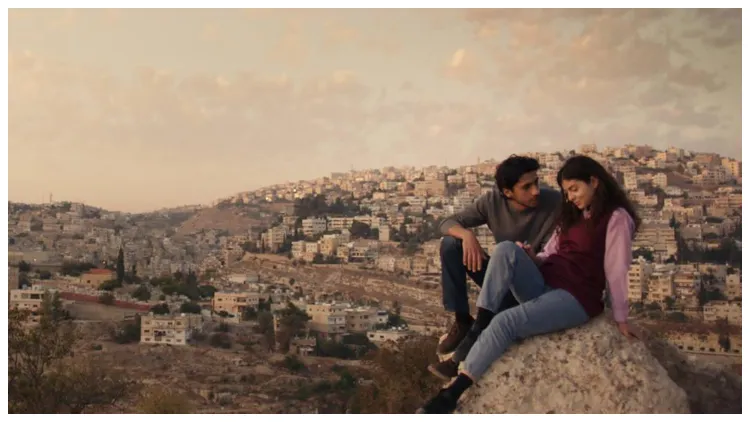
The courage of Amira and Varda face the situation with courage. Neither of them has any regrets; both take the responsibility for their actions.
Omar al-Johri's Feathers has raised an uproar in Egypt. Nationalist groups are fiercely criticizing it on social media as they claim the film tarnishes the country’s image. A tyrant man is turned into a rooster during a magic show organized for his six-year-old son's birthday. No effort can revive him as a human. His wife takes care of her rooster-husband and their three children.
One day her husband is found dying; looks like a corpse. The woman serves him wholeheartedly but to no avail. One day she comes and kills the rooster. In the evening the smoke of the factory fills the house. The next morning she says that 'night is over and this is my morning'.
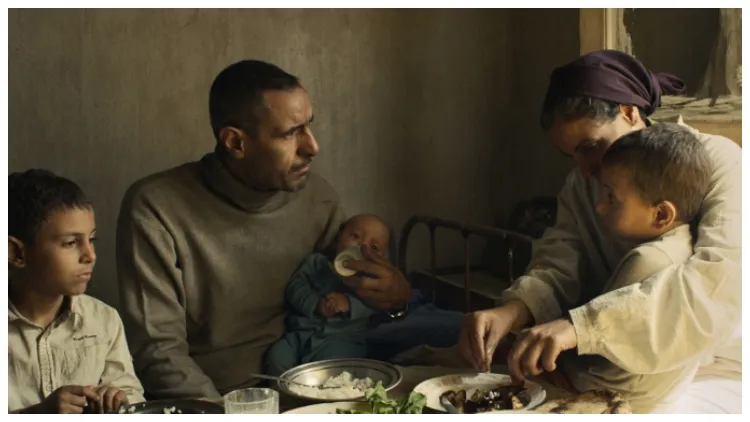
Like Nargis, the heroine of Mehboob Khan's Mother India, the film depicts the struggle of a woman who has to raise children alone after the disappearance of her husband. The surrounding conditions are similar to Maxim Gorky's play Lower Depth that depicts poverty and deprivation.
The Costa Brava, Lebanon by the young Lebanese filmmaker Mounia Akal is based on government corruption and a family fighting for the dignity of life in the garbage disposal. Walid Badri and his wife Souraya one day leave Beirut to live in a house built in a nearby forest so that their children get a natural environment. Her mother suffers from respiratory disease. The problem arises when the government converts the land in front of their house into a garbage dump.
Every day all the garbage of the city is thrown there through trucks; the family is surrounded by deadly trash and pollution. Souraya courageously opposes this. Souraya is played by world-famous Lebanese filmmaker Nadine Labaki.
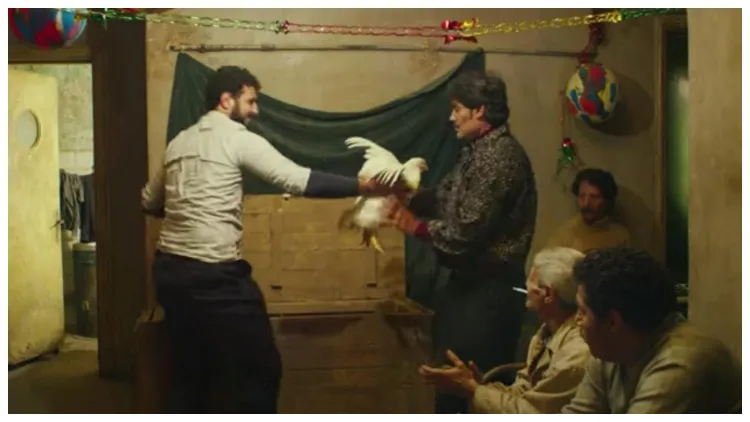
Elie Dagher's film The Sea Ahead from Lebanon is the story of a depressed woman Jana, who leaves Paris Art school to return to her parents in her hometown Beirut. Slowly she finds that her beloved city is becoming a stranger to her; she sinks into despair.
The film depicts the vibrant city of Beirut as a character in a variety of images.
The film Casablanca Beats by Nabil Ayuch from Morocco is a collage of many young stories weaved together through rap music and hip hop. A famous rap singer comes as a teacher to a cultural center in Casablanca. He encourages his students to create new raps. During this, many taboo real-life stories emerge in which young boys and girls openly express their views on sexual abuse, religious bigotry, and censorship.
The rights portion of the film is rap music which has been composed by mixing documentary and fiction. The teacher tells his students to vent their sorrows and anger. Many parents accuse the teacher of being anti-Islamic.
That is the first Moroccan film to be included in the main competition section of the Cannes Film Festival. In all these films, we see the Arab woman different from the image in our perception.
(Ajay Rai is a veteran film critic)
